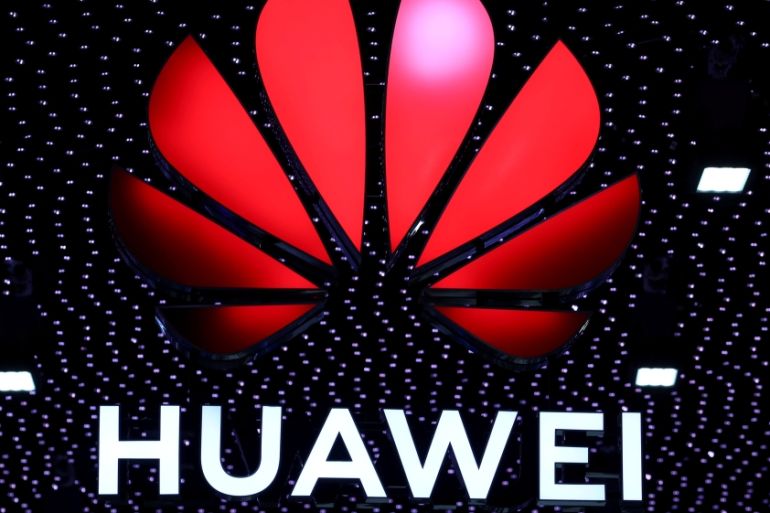Huawei and the cold tech war between US and China
At a technology conference in Tianjin, participants sound optimistic despite worsening US-China relations.

Tianjin, China – This is so much more than a dispute about tariffs. China and the United States are competing for global dominance in technologies of the future: artificial intelligence, robotics and 5G high-speed mobile phone networks.
That has been on display this week at the World Artificial Intelligence Conference in the northern Chinese city of Tianjin, where the mood has been surprisingly upbeat despite the trade war between the world’s two biggest economies.
Keep reading
list of 4 itemsHong Kong’s first monkey virus case – what do we know about the B virus?
Why will low birthrate in Europe trigger ‘Staggering social change’?
The Max Planck Society must end its unconditional support for Israel
Chinese President Xi Jinping wants Beijing to be a world leader in this sector, believing it will help move his country’s economy up the value chain and improve the lives of his people.
But US President Donald Trump sees it very differently. He says China wants global tech dominance and does not care how it is achieved.
But in Tianjin, even representatives of the small number of US tech exhibitors sounded optimistic. Yin Xingjie, from US technology and manufacturing giant Honeywell, played down suggestions the trade war had made it harder to sell its products in today’s China.
“I don’t think so. China is open for all the different products … Our Chinese customers think American products are very good,” Yin told Al Jazeera.
Staying optimistic
At the stand of China’s telecom behemoth Huawei, the mood was oddly sanguine. Just hours earlier, Trump had signed an executive order that would effectively blacklist the firm and its affiliates in the US.
Shen Hongyuan, a local Huawei manager, politely declined to answer questions about whether he felt the company’s business was now finished in the US. Again, like Yin from Honeywell, he wanted to stress the positive. “We hope we can cooperate with other countries,” he said.
![Huawei displayed its surveillance cameras at an exhibition during the World Artificial Intelligence Congress in Tianjin, China this week [Jason Lee/Reuters]](/wp-content/uploads/2019/05/ece577e37c35476b8431bc6520ea36df_18.jpeg)
In truth, the US has become far less important as a market for Huawei than other parts of the world – at least in terms of its smartphones.
“Huawei has not been able to crack the US market. And that’s where it gets interesting, because … still, every quarter Huawei is growing at a record rate. So it is still growing in China, and that is spectacular. And the next region it’s growing in is Europe, and Southeast Asia,” Shobhit Srivastava, an India-based analyst at Counterpoint Research, told Al Jazeera by phone.
But it’s the Middle East and Africa where sales of Huawei phones are growing the fastest, recording a 68 percent expansion in the first quarter of this year compared with the same period in 2018, according to Counterpoint.
The research firm says 17 percent of the world’s smartphones were made by Huawei in the first quarter, making it the second-biggest maker behind Samsung and one notch before Apple.
To China’s leadership, the US case against Huawei is confected, driven by bewilderment and jealousy that one company has come so far, so quickly.
But to the Trump administration, Huawei represents all that is wrong with China’s economy – a success story built on stolen technology.
But, make no mistake, this is serious for Huawei.
Of top concern will be its inclusion on the US Commerce Department’s “Entity List.” This means US firms that sell key components – like the chips used in Huawei phones – will have to apply for a license. That is going to make it very difficult for Huawei to do business with any US firm.
Analysts say they are digging in for the long haul.
“The US-China trade conflict shows no sign of de-escalating anytime soon, as the White House banned Huawei from selling equipment to the US market and required US companies to obtain licences in order to sell chips and technology to Huawei,” CMC Markets analyst Margaret Yang said in a research note.
The human factor
And the dispute has a human dimension, like the two Canadians who Beijing formally arrested within hours of Trump’s executive order. Businessman Michael Kovrig and former diplomat Michael Spavor have been held incommunicado since last December, just days after Meng Wenzhou, Huawei’s chief financial officer, was arrested in Canada on an extradition warrant issued by the US.
![US and Chinese trade negotiators have been trying to strike a deal for months [File: Mark Schiefelbein/Reuters]](/wp-content/uploads/2019/02/eac5b0ef2afc44c9bf4683927ce0cf36_18.jpeg)
Beijing continues to insist the two cases are not connected. The two Canadians are accused of “providing state secrets to foreign organisations”. China will not confirm where the two are being held or whether they have been given access to a lawyer.
The Trump administration’s renewed efforts to neuter Huawei’s US operations does not bode well for the faltering trade talks between Washington and Beijing. On Thursday, a spokesman for China’s Commerce Ministry said he “did not have information on any US plan” to come to Beijing to continue discussions.
And things could be about turn even nastier, according to the nationalist-leaning Global Times newspaper. An article in Thursday’s edition suggests China has two weapons at its disposal.
One could be a total ban on the export of rare earth materials to the US – China accounts for a majority of the world’s total. Debt is the other card – China holds more than $1 trillion of US Treasury bonds. And notes the writer: “The US would be miserable if China hits it when it’s down.”
|
|